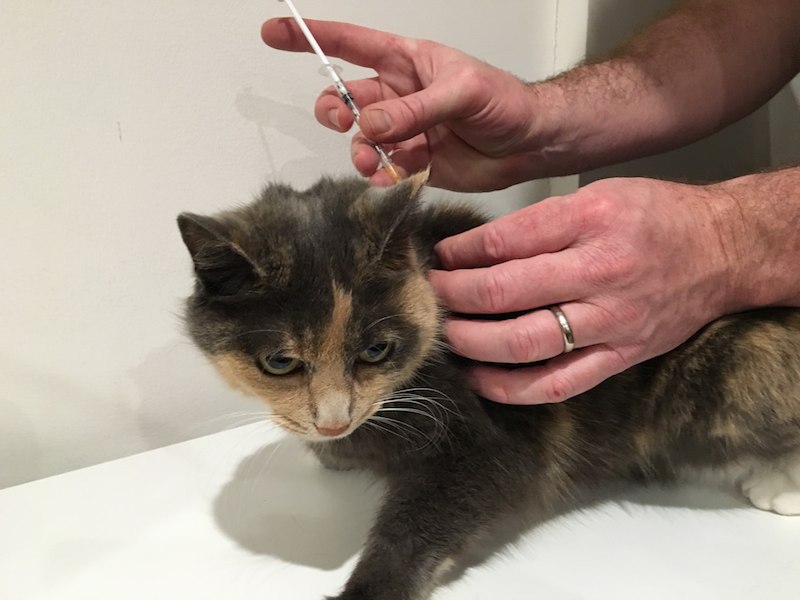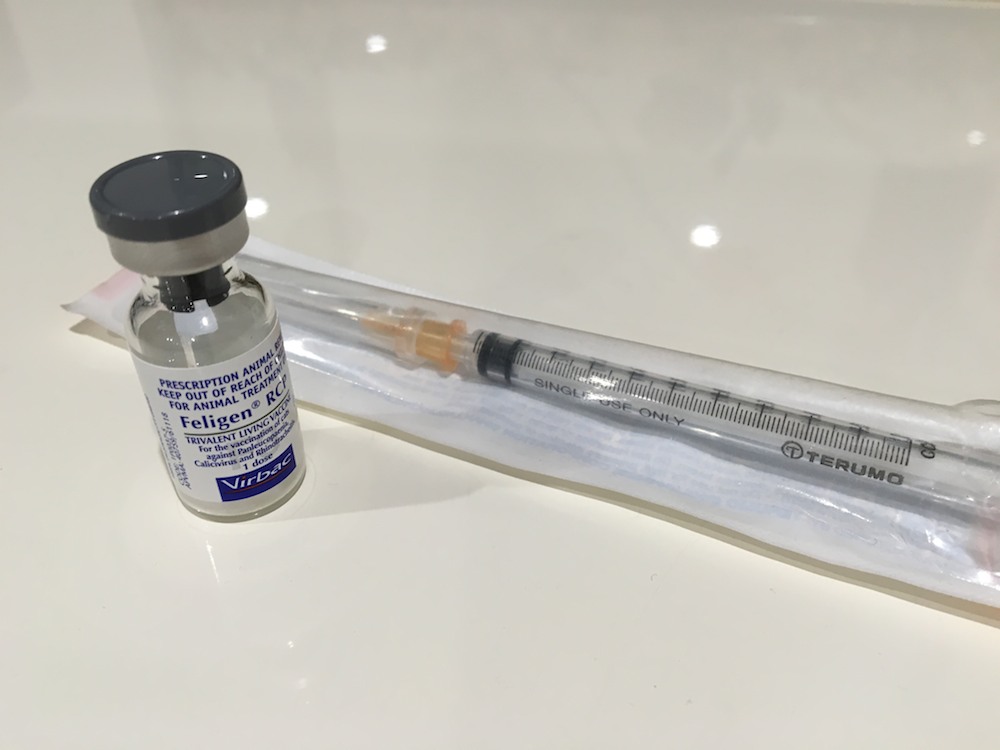
Why do vets do that? Cat Vaccinations.
V accinations are used to trigger protective immune responses in animals (and people) and prepare them to fight future infections when exposed to disease causing agents. They reduce or eliminate the severity of symptoms of disease.
With a proper schedule of vaccinations we can help you to give your pet the best possible protection. Our recommended schedule is a
- first vaccination at 6-8 weeks of age
- booster vaccination at 10-12 weeks.
- A further booster vaccination may be recommended at 16 weeks of age
- An annual booster is required by all cats to maintain immunity
In Australia cats are exposed to a number of infection diseases including:
- Feline panleukopaenia (feline enteritis): this disease has a rapid onset of high temperature, loss of appetite, depression, vomiting and diarrhoea. It may be fatal and can cause abortion in pregnant queens and foetal abnormalities.
- Feline Rhinotracheitis Virus: also know as feline herpesvirus-1: this virus contributes ‘cat flu’.
- Feline Calicivirus: Also contributes to ‘cat flu’.
- Symptoms of the cat flu include causes sneezing, coughing, eye and nose discharge, loss of appetite and ulcers on the tongue. Cats often become very lethargic with a loss of appetite and this can be fatal. Cats usually become carriers for many years, possibly lifelong. They can spread the disease to other cats even after they have recovered from the initial infection.

There are two other vaccinations we may discuss with you if your cat is at risk. Both are transferred between cats when fighting so cats who roam outdoors are susptible.
- Chlamydophila (previously known as Chlamydia): this primarily causes conjunctivitis and flu like symptoms in young kittens 5-9months of age
- Feline Leukaemia Virus: this virus leaves cats more susceptible to infection and illness as well as prone to developing certain cancers including Leukaemia. It attacks the immune system and can be detected on blood test but only the symptoms can be treated, there is no cure
- Feline Immunodeficiency Virus (FIV): also known as feline AIDS this disease is potentially fatal by interfering with the immune system. Symptoms of disease include fever, sores and diarrhoea. Again there is no cure for this disease and only the symptoms can be treated.
